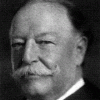What a contrast to this civil war in our midst! Here, set deep inside the country, are conspiracy, danger and a deadly foe. Degeneracy, madness and evil are the enemies we have to fight.
[Domesticum bellum manet, intus insidiae sunt, intus inclusum periculum est, intus est hostis. cum luxuria nobis, cum amentia, cum scelere certandum est.]
Marcus Tullius Cicero (106-43 BC) Roman orator, statesman, philosopher
Orationes in Catilinam [Catilinarian Orations], No. 2, ch. 5 / § 11 (2.5.11) (63-11-09 BC) [tr. Grant (1960)]
(Source)
Cicero argues that, having achieved peace with other nations, the danger to Rome is now the internal one of Catiline and his decadent, wastrel followers.
(Source (Latin)). Alternate translations:
The Plot is within; the danger locked within; the Enemy is within: We have a Conflict with Luxury, with Madness, with Treachery.
[tr. Wase (1671)]
Our only danger is at home; treason lurks within our walls; the enemy is in the heart of the city. Luxury, villainy, and madness, are the foes we are to encounter.
[tr. Sydney (1795)]
Domestic war alone remains. The only plots against us are within our own walls, -- the danger is within, -- the enemy is within. We must war with luxury, with madness, with wickedness.
[tr. Yonge (1856)]
A war at home remains; the snares are within; the danger is inclosed within; the enemy is within; we have to contend with luxury, with madness, with guilt.
[tr. Mongan (1879)]
A domestic war remains; the snares are within; the danger is inclosed within; the enemy is within; it is to be contended to (by) us with luxury, with madness, with crime.
[tr. Underwood (1885)]
A domestic war remains; the ambuscades are within; the danger is enclosed within; the enemy is within; (it) is to [must] be contended by us [we must contend] with luxury, with madness, with crime.
[tr. Dewey (1916)]
The enemy is within the gates; it is with our own luxury, our own folly, our own criminality that we have to contend.
[tr. Taylor (1916)]
Quotations about:
conspiracy
Note not all quotations have been tagged, so Search may find additional quotes on this topic.
SEMPRONIUS: Oh! think what anxious moments pass between
The birth of plots, and their last fatal periods,
Oh! ’tis a dreadful interval of time,
Filled up with horror all, and big with death!
Destruction hangs on every word we speak,
On every thought, till the concluding stroke
Determines all, and closes our design.Joseph Addison (1672-1719) English essayist, poet, statesman
Cato, Act 1, sc. 3, l. 50ff (1713)
(Source)
But if they should seek only revels and mistresses in wine and in the dice, they might be so despaired of indeed, but still they would be endurable. But who can endure this, that indolent fellows should lie in wait for the bravest men, the most foolish for the most prudent, the drunken for the sober, the sleeping for those lying awake? Who, reclining at banquets, embracing unchaste women, exhausted with wine, gorged with food, crowned with wreaths, besmeared with perfumes, debilitated by debaucheries, in their conversations belch out the slaughter of the good and the conflagrations of the city.
[Quod si in vino et alea comissationes solum et scorta quaererent, essent illi quidem desperandi, sed tamen essent ferendi: hoc vero quis ferre possit, inertis homines fortissimis viris insidiari, stultissimos prudentissimis, ebrios sobriis, dormientis vigilantibus? Qui mihi accubantes in conviviis, complexi mulieres impudicas, vino languidi, conferti cibo, sertis redimiti, unguentis obliti, debilitati stupris eructant sermonibus suis caedem bonorum atque urbis incendia.]
Marcus Tullius Cicero (106-43 BC) Roman orator, statesman, philosopher
Orationes in Catilinam [Catilinarian Orations], No. 2, ch. 5 / § 10 (2.5.10) (63-11-09 BC) [tr. Mongan (1879)]
(Source)
Excoriating the wastrel followers of Catelline.
(Source (Latin)). Alternate translations:
Now if amidst their Drinking and Gaming, they only regarded Riot and Whoring, they were indeed little hopeful, but yet tolerable. But who can endure this, that Cowards should lay wait for the Valiant, Fools for the Wise, Sots for the Sober, Sluggards for the Vigilant? That sit me at Treats with their Misses in their Laps, their Brains swimming with Wine, Stomachs over charged with Meat, Garlands on their Heads, daubed with Sweet Oyntment, weakned with Whoring, and belch out in their talk the slaughter of the honest Party and the firing of the City.
[tr. Wase (1671)]
But if debauchery and the gratification of inordinate desires had been their only object, they might still deserve some lenity; their gaming-tables, their banquets, and their harlots might be in some degree forgiven: the men, it is true, would have been lost to every virtue, but the commonwealth would have been safe. The case is now very different: that cowards should lie in ambush for the brave; that fools should lay snares for the wise and good; that sots and drunkards should plot against the sober, and sluggards combine against the vigilant; this who can bear? And it is by such despicable traitors that the city is thrown into consternation; by a set of abandoned wretches, lolling at ease on their convivial couches, caressing their strumpets, intoxicated with liquor, crowned with garlands, sweetened with perfumes, and enervated by their vicious pleasures. Men do that description take upon them to reform the state; over their cups they disgorge their treasonable designs, and in bitter execrations devote us all to destruction.
[tr. Sydney (1795)]
But if in their drinking and gambling parties they were content with feasts and harlots, they would be in a hopeless state indeed; but yet they might be endured. But who can bear this, -- that indolent men should plot against the bravest, -- drunkards against the sober, -- men asleep against men awake, -- men lying at feasts, embracing abandoned women, languid with wine, crammed with food, crowned with chaplets, reeking with ointments, worn out with lust, belch out in their discourse the murder of all good men, and the conflagration of the city?
[tr. Yonge (1856)]
But if in wine and dice they might seek only revellings and prostitutes, they would be to be despaired of indeed; but yet they would be to be borne. But who may be able to bear this, (for) inactive men to lie in wait for the bravest men, the most foolish for the most prudent, the drunken for the sober, the sleeping for the watching? Who (for me), reclining in banquets, having embraced unchaste women, languid with wine, filled with food, crowned with garlands, besmeared with perfumes, weakened with debaucheries, belch out in their discourses the slaughter of the good, and the conflagrations of the city.
[tr. Underwood (1885)]
But if in wine and dice they were seeking only street revellings and prostitutes, they must be despaired of indeed; but yet they must be endured. But who many be able to endure this, (that) idle men [fellows] to [should] lie in wait for the bravest men, the most foolish for the most prudent, the drunken for the sober, the sleeping fo the watchin? Who I say, reclining in banquets, having embraced unchaste women, sluggish with wine, crammed with food, wreathed with garlands, besmeared with perfumes, weakened with debaucheries, belch forth in their discourses the slaughter of the good, and the conflagrations of the city.
[tr. Dewey (1916)]
Now, if during their drinking and gambling bouts they merely caroused and whored, they would be hopeless enough cases, it is true, yet they could be put up with all the same. But what is unbearable is that these spiritless, stupid, drunken, somnolent brutes should be plotting to cut down citizens who are pre-eminent for their courage and wisdom and sobriety and energy. For as these individuals recline at their banquets and embrace their harlots, dazed by wine and stuffed by food, garlanded with wreathes and smothered with scents and riddled with every sort of lewdness, the vomit which issues from their mouths consists of talk about massacring every loyal citizen and burning the city to the ground.
[tr. Grant (1960)]
And yet there are some men here in this Senate who either genuinely fail to see, or make a pretense of not seeing, the disasters by which we are menaced. Their mildness has fostered Catiline’s hopes, and their refusal to believe in his growing conspiracy has given it strength. Had I punished Catiline, their influence would cause many persons, some of them malignant but others merely ignorant, to say that I had acted with tyrannical brutality.
[Quamquam non nulli sunt in hoc ordine qui aut ea quae imminent non videant aut ea quae vident dissimulent; qui spem Catilinae mollibus sententiis aluerunt coniurationemque nascentem non credendo conroboraverunt; quorum auctoritate multi non solum improbi verum etiam imperiti, si in hunc animadvertissem, crudeliter et regie factum esse dicerent.]
Marcus Tullius Cicero (106-43 BC) Roman orator, statesman, philosopher
Orationes in Catilinam [Catilinarian Orations], No. 1, § 12, cl. 30 (1.12.30) (63-11-08 BC) [tr. Grant (1960)]
(Source)
Urging the Senate banish Catiline before he and his followers overthrow the Roman Republic.
(Source (Latin)). Alternate translations:
Although there are some in this House, who either not see what is imminent, or dissemble what they see; who have cherish'd the hopes of Catiline with useless (?) Votes, and have confirmed the rising Conspiracy, by not believing it: whose Authority many, not onely out of malice, but of simplicity following, had I executed him, would have said, it had been a cruel and tyrannical Act
[tr. Wase (1671)]
Yet even now, in this very assembly, there are senators, and those not a few, who do not see the impending danger; or, seeing it, think proper to disguise their sentiments. By specious moderation they have pampered the hopes of Catiline, and, affecting to think my fears no more than a false alarm; they favoured the conspiracy in its birth; By their example numbers have been influenced; the evil-minded raised a spirit of discontent, and the weak joined in the clamour, All of that description would be ready to pronounce the death of Catiline the act of a violent and arbitrary Consul.
[tr. Sydney (1795)]
Though there are some men in this body who either do not see what threatens, or dissemble what they do see; who have fed the hope of Catiline by mild sentiments, and have strengthened the rising conspiracy by not believing it; influenced by whose authority many, and they not wicked, but only ignorant, if I punished him would say that I had acted cruelly and tyrannically.
[tr. Yonge (1856)]
Although there are in this assembly some who either may not see those things which are impending, or who may conceal their knowledge of those things which they see; who have nourished the hope of Catiline by mild opinions, and who have strengthened the growing conspiracy by not believing it; following whose authority many, not only the wicked, but also the unskillful, if I should have inflicted punishment on him, would say that this had been done cruelly and tyrannically.
[tr. Mongan (1879)]
Although there are some in this order (assembly), who either may see not those (things) which impend, or may dissemble those (things), which they see: who have nourished the hope of Catiline by soft (mild) opinions, and have strengthened the growing conspiracy by believing (it) not. The authority of whom many having followed, not only the dishonest, but also the unskillful, if I might have animadverted upon him (if I had punished him), would say (it) to have been done cruelly and royally (tyrannically).
[tr. Underwood (1885)]
Although there are some in this order [body], who either may not see these (things) which impend, or may dissemble those (things) which they see: who have nourished the hope of Catiline by soft [mild] opinions, and have strengthened the growing conspiracy by not believing (it). The authority of whom many have followed, not only the dishonest, but also the inexperienced, if I had given attention to [punished] him they, would say )it) to have [had] been done cruelly and royally [tyrannically].
[tr. Dewey (1916)]
And yet there are several men in this body, of the kind who either do not see what is threatening to them, or disguise what things they see, and these men nourish the hope of Catiline by tender notions and strengthen the young conspiracy by not believing; by whose authority many not only wicked (men), but also inexperienced (men), if I were to have (Catiline) punished , would say that it had been done cruelly and despotically.
[IB Notes]
“Both Dido and the Trojan chief will reach
their shelter in the same cave. I shall be there.
And if I can rely on your goodwill,
I shall unite the two in certain marriage
And seal her as Aeneas’ very own;
and this shall be their wedding.” Cytherea
said nothing to oppose the plan; she granted
what Juno wanted, smiling at its cunning.[“Speluncam Dido dux et Troianus eandem
devenient; adero, et, tua si mihi certa voluntas,
conubio iungam stabili propriamque dicabo,
hic hymenaeus erit.” — Non adversata petenti
adnuit, atque dolis risit Cytherea repertis.]Virgil (70-19 BC) Roman poet [b. Publius Vergilius Maro; also Vergil]
The Aeneid [Ænē̆is], Book 4, l. 124ff (4.124-128) [Juno] (29-19 BC) [tr. Mandelbaum (1971), l. 164ff]
(Source)
Juno, planning stratagems to isolate then marry Aeneas and Dido, and Venus (who's actually working for Jove) consenting to the shenanigans.
(Source (Latin)). Alternate translations:
The Trojan, and the Queen shall take one cave,
I will be present, if thy aid I have.
In wedlock firme I'le dedicate her thine.
There, Hymen them in private shall combine.
These faire proposalls Venus not denide,
Smiling when she her cunning drift espide.
[tr. Ogilby (1649)]
"One cave a grateful shelter shall afford
To the fair princess and the Trojan lord.
I will myself the bridal bed prepare,
If you, to bless the nuptials, will be there:
So shall their loves be crown'd with due delights,
And Hymen shall be present at the rites."
The Queen of Love consents, and closely smiles
At her vain project, and discover'd wiles.
[tr. Dryden (1697)]
Dido and the Trojan prince shall repair to the same cave: there will I be present, and, if I hav eyour firm consent, I will join them in the lasting bonds of wedlock, and consecrate her to be his for ever. The god of marriage will be there. Venus, without any opposition, agreed to her proposal, and smiled at the fraud she discovered.
[tr. Davidson/Buckley (1854)]
While Dido and the Trojan king
Chance to the self-same cave shall bring:
And there myself, your will once known,
Will make her his, and his alone.
Thus shall they wed.' Love's queen assents:
Smiles at the fraud, but not prevents.
[tr. Conington (1866)]
"Dido and the Trojan prince
To the same cave for shelter will repair.
I will be there, and, if thy will be mine,
Will join them in firm wedlock, and declare
Their union. There the nuptial rites shall be."
Not adverse, Cytherea nods assent
To her request, and smiles at the open fraud.
[tr. Cranch (1872), l. 163ff]
"Dido and the Trojan captain shall take refuge in the same cavern. I will be there, and if thy goodwill is assured me, I will unite them in wedlock, and make her wholly his; here shall Hymen be present." The Cytherean gave ready assent to her request, and laughed at the wily invention.
[tr. Mackail (1885)]
"Then Dido and the Trojan lord on one same cave shall hap;
I will be there, and if to me thy heart be stable grown,
In wedlock will I join the two and deem her all his own:
And there shall be their bridal God." Then Venus nought gainsaid,
But, nodding yea, she smiled upon the snare before her laid.
[tr. Morris (1900)]
"One cave shall screen both lovers in that hour.
There will I be, if thou approve, meanwhile
And make her his in wedlock. Hymen's power
Shall seal the rite." -- Not adverse, with a smile
Sweet Venus nods assent, and gladdens at the guile.
[tr. Taylor (1907), st. 16, l. 140ff]
"... While Dido and her hero out of Troy
to the same cavern fly. My auspices
I will declare -- if thou alike wilt bless;
and yield her in true wedlock for his bride.
Such shall their spousal be!" To Juno's will
Cythera's Queen inclined assenting brow,
and laughed such guile to see.
[tr. Williams (1910)]
"To the same cave shall come Dido and the Trojan chief. I will be there and, if certain of thy goodwill, will link them in sure wedlock, sealing her for his own ; this shall be their bridal!" Yielding to her suit, the Cytherean gave assent and smiled at the guile discovered.
[tr. Fairclough (1916)]
"And Dido and the Trojan come for shelter
To the same cave. I will be there and join them
In lasting wedlock; she will be his own,
His bride, forever; this will be their marriage."
Venus assented, smiling, not ungracious --
The trick was in the open.
[tr. Humphries (1951)]
But Dido and lord Aeneas, finding their way to the same cave,
Shall meet. I'll be there: and if I may rely on your goodwill,
There I shall join them in lasting marriage, and seal her his,
With Hymen present in person. Venus made no opposition
To Juno's request, though she smiled at the ingenuity of it.
[tr. Day Lewis (1952)]
"As Dido and the Trojan captain come
To one same cavern, I shall be on hand,
and if I can be certain you are willing,
There I shall marry them and call her his.
A wedding, this will be." Then Cytherea,
Not disinclined, nodded to Juno's plea,
And smiled at the stratagem now given away.
[tr. Fitzgerald (1981), l. 173ff]
"Dido and the leader of the Trojans will both take refuge in the same cave. I shall be there, and if your settled will is with me in this, I shall join them in lasting marriage and make her his. This will be their wedding." This was what Juno asked, and Venus of Cythera did not refuse her but nodded in assent. She saw through the deception and laughed.
[tr. West (1990)]
Dido and the Trojan leader will reach the same cave.
I’ll be there, and if I’m assured of your good will,
I’ll join them firmly in marriage, and speak for her as his own:
this will be their wedding-night.” Not opposed to what she wanted,
Venus agreed, and smiled to herself at the deceit she’d found.
[tr. Kline (2002)]
"And Dido and Troy’s commander will make their way
to the same cave for shelter. And I’ll be there,
if I can count on your own good will in this --
I’ll bind them in lasting marriage, make them one.
Their wedding it will be!” So Juno appealed
and Venus did not oppose her, nodding in assent
and smiling at all the guile she saw through ...
[tr. Fagles (2006)]
"But Dido and the Trojan prince will come to the same cave.
I'll be there, and if you're sure you want this,
I'll join them in a stable marriage; she'll be his.
This will be their wedding."
Venus, smiling at the trick's transparency, agreed to this request.
[tr. Bartsch (2021)]
People are entirely too disbelieving of coincidence. They are far too ready to dismiss it and to build arcane structures of extremely rickety substance in order to avoid it.
Isaac Asimov (1920-1992) Russian-American author, polymath, biochemist
“The Planet that Wasn’t,” The Magazine of Fantasy and Science Fiction (May 1975)
(Source)
When democracy granted democratic methods for us in the times of opposition, this was bound to happen in a democratic system. However, we National Socialists never asserted that we represented a democratic point of view, but we have declared openly that we used democratic methods only in order to gain the power and that, after assuming the power, we would deny to our adversaries without any consideration the means which were granted to us in the times of opposition.
Joseph Goebbels (1897-1945) German Nazi politician, propagandist, bureaucrat
Nature and Form of National Socialism [Wesen und Gestalt des Nationalsozialismus], Pamphlet (1935)
(Source)
Quoted in Office of the United States, Chief Counsel for Prosecution of Axis Criminality, Nazi Conspiracy and Aggression, Vol. 1, ch. 7, doc. 2412-PS (1946)
How can we account for our present situation unless we believe that men high in this government are concerting to deliver us to disaster? This must be the product of a great conspiracy, a conspiracy on a scale so immense as to dwarf any previous such venture in the history of man. A conspiracy of infamy so black that when it is finally exposed, its principals shall forever be deserving of the maledictions of all.
Joseph McCarthy (1908-1957) American politician, attorney
“America’s Retreat from Victory: The Story of Gen. George C. Marshall,” speech, US Senate (14 Jun 1951)
(Source)
Part of a 65,000 word speech given by McCarthy, attacking Sec. of Defense George C. Marshall (and, by proxy, Harry Truman), alleging a string of sinister post-WW2 US diplomatic and military failures, culminating in Truman's firing of Douglas MacArthur.
Any historian of warfare knows it is in good part a comedy of errors and a museum of incompetence; but if for every error and every act of incompetence one can substitute an act of treason, many points of fascinating interpretation are open to the paranoid imagination. In the end, the real mystery, for one who reads the primary works of paranoid scholarship, is not how the United States has been brought to its present dangerous position but how it has managed to survive at all.
As for Eisenhower himself, Welch characterized him, in words that have made the candy manufacturer famous, as “a dedicated, conscious agent of the Communist conspiracy” — a conclusion, he added, “based on an accumulation of detailed evidence so extensive and so palpable that it seems to put this conviction beyond any reasonable doubt.”
But the modern right wing, as Daniel Bell has put it, feels dispossessed: America has been largely taken away from them and their kind, though they are determined to try to repossess it and to prevent the final destructive act of subversion. The old American virtues have already been eaten away by cosmopolitans and intellectuals; the old competitive capitalism has been gradually undermined by socialistic and communistic schemers; the old national security and independence have been destroyed by treasonous plots, having as their most powerful agents not merely outsiders and foreigners as of old but major statesmen who are at the very centers of American power. Their predecessors had discovered conspiracies; the modern radical right finds conspiracy to be betrayal from on high.
Richard Hofstadter (1916-1970) American historian and intellectual
“The Paranoid Style in American Politics,” Herbert Spencer Lecture, Oxford (Nov 1963)
(Source)
Reprinted in Harpers (Nov 1964).
The enemy is clearly delineated: he is a perfect model of malice, a kind of amoral superman—sinister, ubiquitous, powerful, cruel, sensual, luxury-loving. Unlike the rest of us, the enemy is not caught in the toils of the vast mechanism of history, himself a victim of his past, his desires, his limitations. He wills, indeed he manufactures, the mechanism of history, or tries to deflect the normal course of history in an evil way. He makes crises, starts runs on banks, causes depressions, manufactures disasters, and then enjoys and profits from the misery he has produced. The paranoid’s interpretation of history is distinctly personal: decisive events are not taken as part of the stream of history, but as the consequences of someone’s will.
Richard Hofstadter (1916-1970) American historian and intellectual
“The Paranoid Style in American Politics,” Herbert Spencer Lecture, Oxford (Nov 1963)
(Source)
Reprinted in Harpers (Nov 1964).
[A man who] counts the pain of the state as his own glory; as if, indeed, your consulate were not the reason for that conspiracy and through which the republic was torn apart when it possessed you as its protector.”
[… qui civitatis incommodum in gloriam suam ponit. Quasi vero non illius coniurationis causa fuerit consulatus tuus et idcirco res publica disiecta eo tempore quo te custodem habebat.]
Sallust (c. 86-35 BC) Roman historian and politician [Gaius Sallustius Crispus]
Invectiva in Ciceronem [Invective Against Cicero], sec. 3 [tr. @setentiq (2020)] (Spurious)
(Source)
In reference to the Catiline conspiracy. Most scholars believe this was not Sallust's work, but that of a 1st Century rhetorician, likely the one who penned the provoking Invective against Sallust, ostensibly by Cicero.
Alt. trans.:
- "[He] who caused the state injury to augment his own glory. As though your consulship were not the cause of that conspiracy! That is the reason the state was torn apart at that time with you as its guardian." [tr. Novokhatko (2009)]
- "[A] man who makes disaster to his country the means of his own glorification, was sent as a protector to this city and its citizens, and not as its executioner. As if, forsooth, your consulship was not the cause of that conspiracy, and as if the reason why the commonwealth was not rent asunder at that time was because it had you for a protector." [tr. Loeb ed. (1921), sec. 2]
Many journalists have fallen for the conspiracy theory of government. I do assure you that they would produce more accurate work if they adhered to the cock-up theory.
Bernard Ingham (b. 1932) British journalist, civil servant, press secretary
Quoted in The Observer (17 Mar 1985)
Often paraphrased, "Cock-up before conspiracy." Cf. Hanlon.
The central belief of every moron is that he is the victim of a mysterious conspiracy against his common rights and true desserts. He ascribes all his failure to get on in the world, all of his congenital incapacity and damnfoolishness, to the machinations of werewolves assembled in Wall Street, or some other such den of infamy. If these villains could be put down, he holds, he would at once become rich, powerful and eminent. Nine politicians out of every ten, of whatever party, live and have their being by promising to perform
this putting down. In brief, they are knaves who maintain themselves by preying on the idiotic vanities and pathetic hopes of half-wits.
Physicists and astronomers see their own implications in the world being round, but to me it means that only one-third of the world is asleep at any given time and the other two-thirds is up to something.
There is nothing so despicable as a secret society that is based upon religious prejudice and that will attempt to defeat a man because of his religious beliefs. Such a society is like a cockroach — it thrives in the dark. So do those who combine for such an end.
The higher paranoid scholarship is nothing if not coherent — in fact the paranoid mind is far more coherent than the real world.
As a member of the avant-garde who is capable of perceiving the conspiracy before it is fully obvious to an as yet unaroused public, the paranoid is a militant leader. He does not see social conflict as something to be mediated and compromised, in the manner of the working politician. Since what is at stake is always a conflict between absolute good and absolute evil, what is necessary is not compromise but the will to fight things out to a finish. Since the enemy is thought of as being totally evil and totally unappeasable, he must be totally eliminated — if not from the world, at least from the theatre of operations to which the paranoid directs his attention. This demand for total triumph leads to the formulation of hopelessly unrealistic goals, and since these goals are not even remotely attainable, failure constantly heightens the paranoid’s sense of frustration. Even partial success leaves him with the same feeling of powerlessness with which he began, and this in turn only strengthens his awareness of the vast and terrifying quality of the enemy he opposes.
Richard Hofstadter (1916-1970) American historian and intellectual
“The Paranoid Style in American Politics,” Herbert Spencer Lecture, Oxford (Nov 1963)
(Source)
Reprinted in Harpers (Nov 1964).
Yes, there is a conspiracy, indeed there are a great number of conspiracies, all tripping each other up. … The main thing that I learned about conspiracy theories is that conspiracy theorists actually believe in the conspiracy because that is more comforting. The truth of the world is that it is chaotic. The truth is, that it is not the Jewish banking conspiracy, or the grey aliens, or the twelve-foot reptilioids from another dimension that are in control, the truth is far more frightening: no-one is in control, the world is rudderless.
Alan Moore (b. 1953) British writer
In Dez Vylenz (dir), The Mindscape of Alan Moore, film (2005)
(Source)
Discussing his research about conspiracy theories while writing "Shadowplay: The Secret Team" (1988).
Rebels and dissidents challenge the complacent belief in a just world, and, as the theory would predict, they are usually denigrated for their efforts. While they are alive, they may be called “cantankerous,” “crazy,” “hysterical,” “uppity,” or “duped.” Dead, some of them become saints and heroes, the sterling characters of history. It’s a matter of proportion. One angry rebel is crazy, three is a conspiracy, fifty is a movement.
CAESAR: Let me have men about me that are fat;
Sleek-headed men and such as sleep o’ nights:
Yon Cassius has a lean and hungry look;
He thinks too much; such men are dangerous.
When you’re young, you look at television and think, There’s a conspiracy. The networks have conspired to dumb us down. But when you get a little older, you realize that’s not true. The networks are in business to give people exactly what they want. That’s a far more depressing thought. Conspiracy is optimistic! You can shoot the bastards! We can have a revolution! But the networks are really in business to give people what they want. It’s the truth.
Never attribute to malice that which is adequately explained by stupidity.
(Other Authors and Sources)
Robert J. Hanlon, “Hanlon’s Razor,” Murphy’s Law, Book Two (ed. A. Bloch) (1980)





















